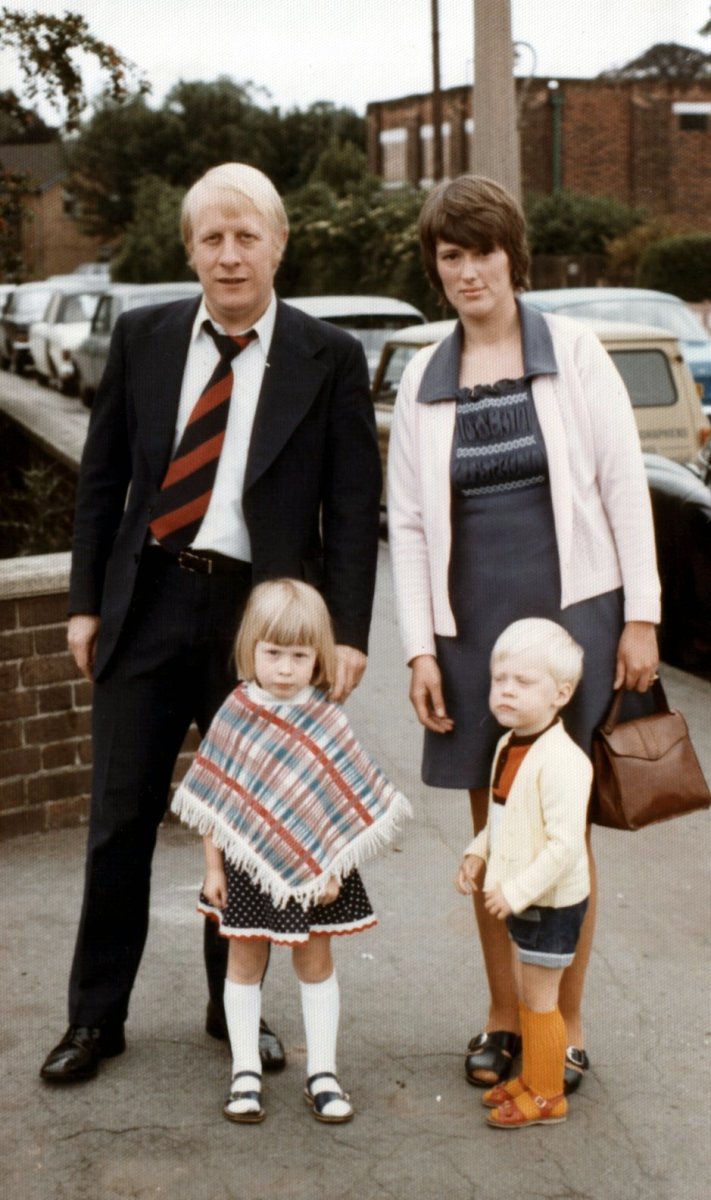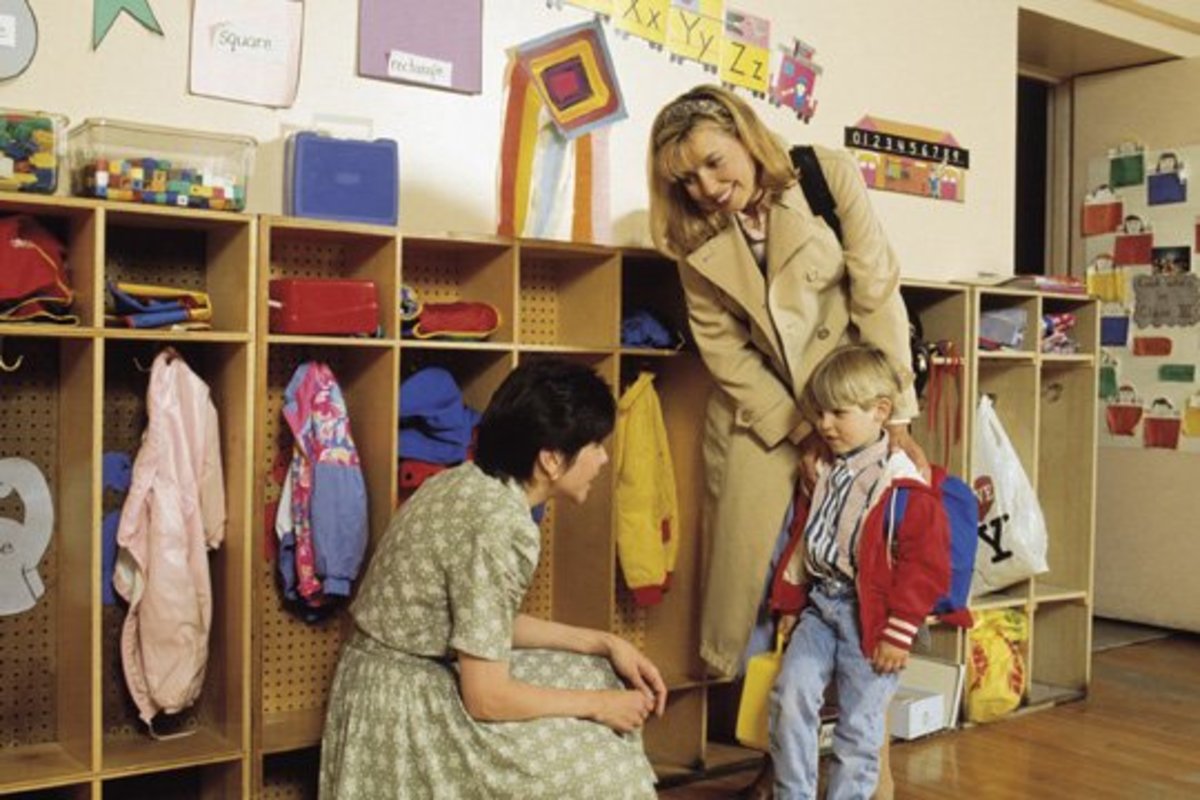How To Communicate With Your Child

What's Wrong With Your Question?
I was out in my backyard with my dogs this afternoon when I heard a neighbour yelling at her son, "What the hell is wrong with you?" Triggered some memories, it did. My mother used to ask that question frequently and in a similar tone. I couldn't see the young boy but I could feel him shrinking. When I got asked that question a list of what's wrong with me the length or better of a roll of toilet paper would scroll through my mind's eye.....I'm this, I'm that, I'm the other thing, none of it good. That question would set me to listing ad nauseum, quite literally. I'd struggle to pick an item off the list that seemed to best fit what my mother appeared to be looking for and meekly deliver it hoping against hope to put a quick end to the misery of it. I won't bore you with the details of what generally followed it is not my intention for writing this but I will tell you that once it was all over I used to stomp around the block a few times asking myself, "Why can't she ask me a question I can answer?" I vowed, as I often did when I felt my parental unit had something array with her wiring, that when I had children of my own, I would not ever, ever I tell you, ask them that stupid, dumb, dumb question.
My children are grown now and I never did ask them that question and I'll tell you why. It is a great question to ask if you want to introvert some one and cave them in but if you want information, if you are looking for facts, or heaven forbid, the truth of a situation forget it. It’s right up there with, “Where were you when God was handing out _______? If you really want to get information out of someone, it doesn’t make much sense then to push them in. It makes far more sense to draw them out.
The question combined with the mood level that it is delivered with hardly evokes confidence from the person being asked. They cannot feel confident that their communication will be received,acknowledged or duplicated in any way whatsoever. They cannot feel confident that whatever is “wrong”is going to be landing on an empathetic, understanding or compassion target. Therefore, they cannot answer the question in a confident manner. Not many of us wake up in the morning and think to themselves, “Gee, I’d like to communicate with a hostile person today!” or better still, confide in one.
The other tragedy of a negative question such as "What the hell is wrong with you?" is that once it's hard wired in there, a person starts asking themselves "What the hell is wrong with me?" accompanied by a low and often antagonistic or hostile mood level. If you want to experiment with this, simply ask yourself the question and watch the toilet paper roll turn into a scroll! Your mind begins to lock up just like your computer - too many windows open! Some questions start a negative process and some start a positive one. It is well past time that we started to consciously begin to run positive processes ourselves and each other!
The question I asked my children instead was, “What is happening?” That’s it – simple. The child then gets to tell you exactly what is going on, right here, right now and then you get to clear up whatever it was that was behind the behavior you, as the parental unit, were objecting to. Sometimes there is something bothering the child and at other times it is just a matter of them not understanding of something or of misunderstanding something. The question, “What is happening?” allows the child to look rather than list. It allows you to be an effective parent.
Now I ask you, what the hell is wrong with that? Nothing!

Put Your Listening Ears On
Once you have asked your child an effective question it is imperative that you then listen to the answer. I mean listen, not stand there thinking about what you are going to make for dinner tonight or having to call so and so about the such and such, I mean be there and listen!
When you ask a question you are at cause, and the child is at the effect of the question. When your child responds to the question he is at cause and you are at the effect of his or her communication. Breath out, breath in! If you throw the proverbial ball than be there to catch it when it is thrown back to you. Too often adults will ask a question of a child and then go completely absent, let their mind wander off and not even mentally or emotionally be there to receive the child's response. On the other hand, these very same parents are too often heard to say, "Listen when I'm talking to you!" Children learn by example, they model. Be a communication role model and LISTEN!

Acknowledge!
Once you have asked your child a question and you have received a response then acknowledge that response. "Okay" or "Good" or "Thank You" or "I got that". It lets your child know that his or her communication has been received and understood. When you fail to acknowledge the receipt of your child's communication they will do one of two things, they will withdraw and cease communicating with you or they will over reach and start to over communicate. Neither is an optimum result for either you or your child. Once you have asked a question, received an answer and acknowledged the answer that cycle of communication is complete. If you have further communication to give or another question to ask do so only after you have completed the last cycle before starting the next.
Very often parents will communicated over the top of their child or they will continue to question or talk to their child without ever indicating to the child that they have been heard. The devastating effects of incomplete communication cycles can be seen throughout families and indeed throughout society. People talk over top of each other. People question another and before that person can even respond the party who initiated the conversation has their attention somewhere else entirely. People withdraw from communicating and avoid it or they over compensate and rattle away at hyper speed. The solution is so simple - complete the cycle!
The truth of the situation is that incomplete communication cycles cause breakdowns in relationships while complete communication cycles build and foster relationships. The ability to communicate is a gift, and it is a gift that we all to often abuse, misuse and take for granted. Our bodies,animals, plants, weather, seasons, indeed our entire planet operate in natural cycles, it only stands to reason then that we should avail ourselves of and apply the natural cycle of communication.
Parents are often heard to complain that their children talk non stop. They do so only because they are at the effect of too many incomplete communication cycles. Control is the ability to start - change - stop. It's physics, once a thing is set in motion it stays in motion until acted upon. An acknowledgment is the correct action to take to end a communication cycle! Put you and your child in control of your communication.
- How To Improve Your Attitude
Before I share with you how to improve your attitude it is important that you are aware of the benefits of improving your attitude both in your business and your personal life. The attitude you hold about... - Puppet Play
Puppets are fun. Whether making puppets or playing with puppets, puppets stimulate, encourage and cultivate your child's imagination. When children play with puppets they are in a world of their own making.... - How Much Does Your Toddler Understand?
Your toddler's limited vocabulary is not a reflection on how much your toddler understands communication. All of us are both transmitters and receivers, when we originate a communication we are transmitting...








